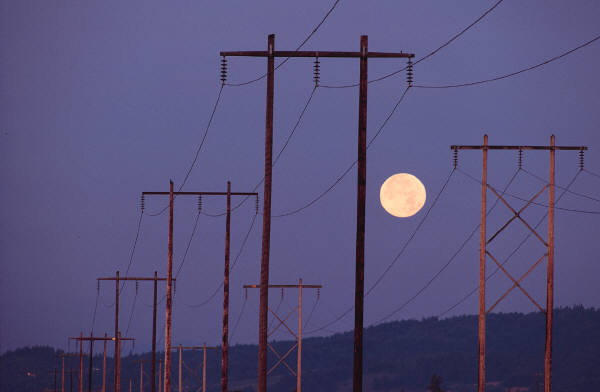 In Viera v. Riverbay Corp. , Vanessa Viera sued to recover damages for injuries sustained falling down a Coop City stairwell.
In Viera v. Riverbay Corp. , Vanessa Viera sued to recover damages for injuries sustained falling down a Coop City stairwell.
On August 14, 2003, at 4:10 pm, North America suffered a massive blackout.
About an hour later, Vanessa, together with her husband and daughter, decided to go to Co-op City to check on Vanessa's mom. Since the latter lived on the 15th floor, the group had to walk up all those flights of stairs. Around 7:00pm, as they descended, Vanessa slipped and fell injuring her neck and back.
Vanessa later filed suit against the Riverbay Corp. , the building's manager, for failing to remove the liquid which caused her fall and for not providing adequate lighting. Riverbay moved for summary judgment on the grounds that it neither had notice of the slippery condition nor had a duty to provide backup lighting during blackouts. When the Bronx County Supreme Court denied the motion, Riverbay appealed to the Appellate Division, First Department, which reversed.
The AD1 was of the opinion that Riverbay was not responsible for the substance on the building's stairs.
And, since Vanessa testified that about an hour and a half prior to her fall she had not observed any fluids on the floor as she ascended those stairs, that (according to the AD1) demonstrated that there had been an insufficient amount of time for Riverbay to have received notice or remedy the condition.
The AD1 further noted that Vanessa's lawyers failed to recite any explicit statute or regulation which imposed a duty on Riverbay to light the stairway during a blackout.
The AD1 differentiated Vanessa's case from Goldstein v. Consolidated Edison Co. of N.Y. (where Morris Goldstein successfully sued his landlord after he slipped and fell in a stairwell during a blackout) because the building's superintendent had created the wet condition by carrying buckets of water up-and-down the stairs. The appellate court also distinguished Vanessa's claim from Kopsachilis v. 130 E. 18 Owners Corp ., (where a building was successfully sued for failing to light a stairway during the same 2003 blackout) since Kopsachilis had cited, and the case had relied upon, Multiple Dwelling Law section 37 -- a law which requires "every light in a windowless fire stair to be kept burning continuously regardless of whether the owner has knowledge of or consents to the extinguishment of such lights."
The AD1 would not apply the Multiple Dwelling Law to this case because Vanessa's attorneys had not made (or otherwise preserved) that argument below.
With that, her case was extinguished.

For a copy of the Appellate Division's decision, please use this link: Viera v. Riverbay Corp.
To view blog post on the Kopsachilis case, please use this link: WHO TURNED THE LIGHTS OFF?
